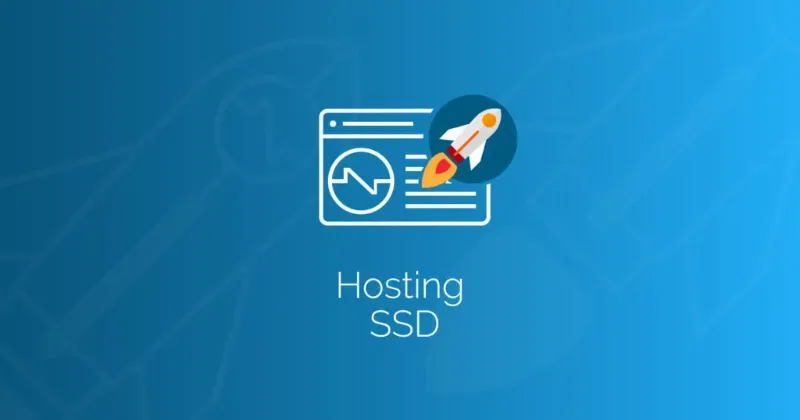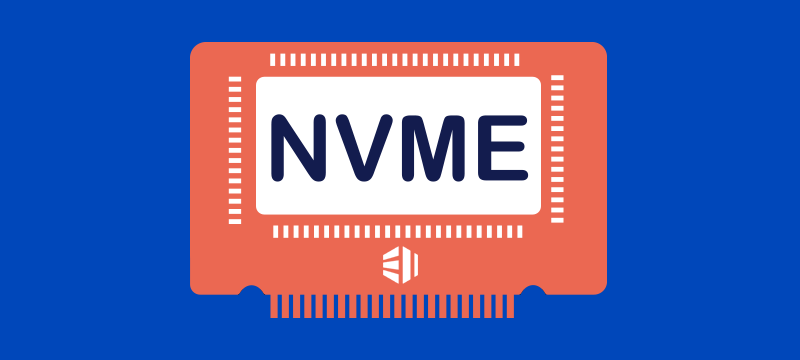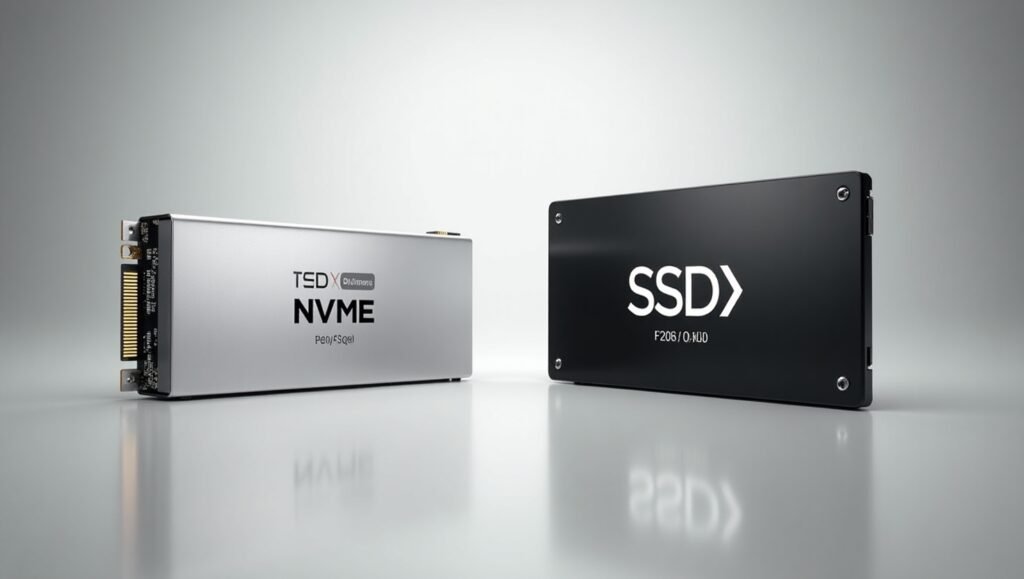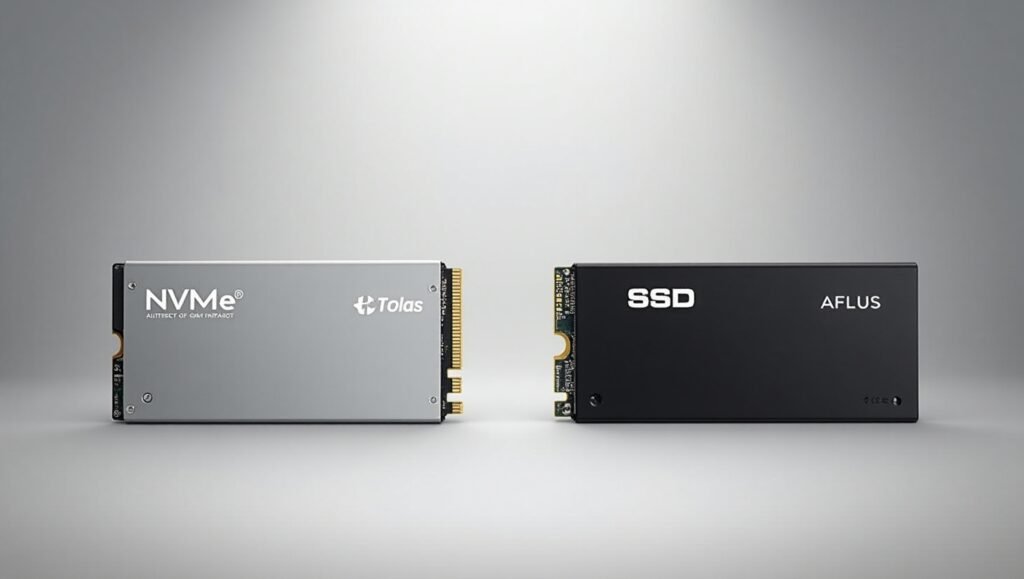In the competitive world of web hosting, speed is everything. When choosing a hosting provider, you may come across terms like SSD Hosting and NVMe Hosting. Both are modern, solid-state technologies, but which one delivers better web performance? Whether you’re running a personal blog, a business site, or an online store, faster page loads translate to better SEO rankings, lower bounce rates, and happier visitors. One of the most critical factors influencing hosting speed is storage technology.
Why Storage Type Matters in Web Hosting?
The storage layer is responsible for reading and writing all website data—files, databases, images, scripts, and server logs. Your site’s performance can bottleneck if this process is slow, even if you have ample RAM and CPU.
Fast storage:
- Reduces page load times
- Enhances Time to First Byte (TTFB)
- Speeds up database queries
- Handles concurrent traffic more efficiently
This is why the difference between SSD and NVMe can significantly affect real-world hosting performance.
Read Also: How to Detect Resource Bottlenecks in Shared Hosting?
What Is SSD Hosting?
SSD (Solid State Drive) hosting uses traditional SATA-based SSDs. These are far superior to the older spinning hard drives (HDDs) and have become the default in modern hosting for good reason.

Key Features of SSD Hosting:
- No moving parts (unlike HDDs)
- Faster than HDDs (typically 3–5 times faster)
- Lower latency and better durability
- SATA III interface with transfer speeds up to 600 MB/s
Use Cases:
- Small to medium websites
- Blogs, portfolios, and business landing pages
- Budget-conscious users looking for decent performance
What Is NVMe Hosting?
NVMe (Non-Volatile Memory Express) is the latest evolution in solid-state storage. It uses the PCIe interface instead of SATA, resulting in massively faster data throughput and lower latency.

Key Features of NVMe Hosting:
- Connects directly to the CPU via PCIe lanes
- Up to 7,000 MB/s read/write speeds (compared to ~550 MB/s for SATA SSDs)
- Handles multiple parallel requests efficiently
- Designed for high-performance applications and hosting environments
Use Cases:
- High-traffic websites
- E-commerce platforms like WooCommerce or Magento
- Database-heavy applications and SaaS platforms
- Users prioritizing peak performance
NVMe vs SSD Technical Comparison
When evaluating the performance of web hosting storage, it’s essential to focus on specific metrics that directly impact the user experience and site efficiency. Both storage drives excel compared to traditional HDDs, but the latter takes performance to the next level across several critical areas.

#1. Read/Write Speeds
This is one of the most obvious differences. SATA SSDs typically offer read/write speeds of 500–600 MB/s, whereas NVMe drives can reach speeds of 3,000–7,000 MB/s or more. For websites, this means faster loading of assets, reduced delays in content delivery, and quicker execution of server-side scripts.
#2. IOPS (Input/Output Operations Per Second)
IOPS measures how many read and write operations a drive can handle per second. NVMe drives offer significantly higher IOPS than SATA SSDs, which is especially important for dynamic websites and applications that make frequent database queries or handle many simultaneous user requests.
#3. Latency
Latency is the delay between a request and the actual data transfer. NVMe drives have much lower latency due to their direct PCIe connection and parallel processing capabilities. This reduced delay leads to snappier server responses and better performance for users, particularly during peak traffic periods.
#4. Throughput
This refers to the amount of data transferred in a given time. Higher throughput means that your website can serve content to users more quickly and efficiently. NVMe’s design allows for greater throughput, which is beneficial for content-heavy sites like media platforms, online stores, or membership-based portals.
#5. Concurrency
Modern websites often handle multiple simultaneous processes—loading images, running scripts, querying databases, and more. NVMe drives support high levels of concurrency through multiple queues and commands, making them ideal for multitasking environments.
Read Also: How to Choose Hosting Based on TTFB (Time to First Byte)
Which Hosting Type Should You Choose?
Go with SSD Hosting if:
- You’re on a budget
- You run a small, low-traffic site
- You’re switching from HDD and want a performance upgrade without paying extra
Go with NVMe Hosting if:
- You need ultra-fast site performance
- You run an e-commerce or high-traffic site
- You want better database query speed and TTFB
- You’re optimizing for Google Core Web Vitals
- Here’s the content for the two selected subheadings:
How Storage Technology Impacts Web Hosting
- The type of storage used in web hosting—whether SSD or NVMe—plays a critical role in overall website performance. When a visitor loads your site, the server retrieves data such as files, images, scripts, and databases from the storage drive. The faster this data is read and written, the quicker your website can respond.
- Traditional SATA SSDs already offer a significant performance boost over older hard disk drives (HDDs), thanks to faster read/write speeds and lower latency. However, NVMe (Non-Volatile Memory Express) takes this a step further. NVMe is designed to work directly with the system’s CPU via the PCIe (Peripheral Component Interconnect Express) interface, which significantly reduces input/output latency and allows for parallel processing of thousands of commands.
- This performance leap results in faster page load times, quicker database queries, and a more responsive user experience—all of which are critical for SEO, user retention, and conversions.
Reliability and Durability
- Reliability is a major concern when choosing a hosting solution, especially for businesses that rely on 24/7 website uptime. Both drives are based on flash memory, meaning they have no moving parts—unlike traditional HDDs—making them much less prone to mechanical failure.
- In terms of durability, NVMe and SATA SSDs are relatively similar when it comes to wear leveling and endurance ratings. The key difference lies in the controller and interface technology. NVMe drives typically use more advanced controllers and firmware that can manage data more efficiently, potentially leading to better long-term performance and reliability under heavy workloads.
- However, for most websites—especially small to medium-sized ones—the difference in durability won’t be noticeable. Both options provide years of stable performance, but NVMe has an edge when handling large volumes of concurrent data requests, making it more suitable for high-traffic or data-intensive applications.
- Would you like content for the remaining subheadings or a polished draft for a full article?
Importance of NVMe in Modern Hosting
With the rise of mobile-first indexing, Core Web Vitals, and user-experience-based SEO rankings, every millisecond counts. NVMe technology is not just faster—it’s architecturally designed for modern workloads. As websites grow in complexity and traffic volume:
- Higher uptime under load
- Faster server responses
- Greater efficiency for database interactions
- Seamless performance scaling
FAQs
Q. Is NVMe hosting worth the extra cost?
A. Yes—especially if you run an online store, use WordPress with heavy plugins, or rely on real-time database queries. The performance gains can easily justify the price difference.
Q. Can I switch from SSD to NVMe hosting?
A. Yes, Most hosting providers offer seamless migrations. However, ensure your web host supports NVMe-based storage at the plan level.
Q. Does NVMe improve TTFB?
A. NVMe’s lower latency and faster data handling significantly reduce Time to First Byte, improving page speed and server responsiveness.
Q. Is NVMe supported in shared hosting?
A. Some premium shared hosting plans now include their drives, though it’s more common in VPS, cloud, and dedicated hosting environments.
Q. Is there a difference in reliability between SSD and NVMe?
A. Both are highly reliable. NVMe offers better endurance under heavy workloads due to its efficient architecture.
Summary
NVMe hosting outperforms SSD hosting in nearly every measurable way—from raw speed to responsiveness under load. While SSDs are still a solid choice for smaller sites, NVMe has become the gold standard for those serious about speed, performance, and scalability. If your goal is to deliver lightning-fast load times, improve SEO, and future-proof your website, NVMe hosting is the way to go.
Need help choosing an NVMe-powered hosting plan or migrating from SSD?
Let me know, I will be happy to guide you to the fastest, most reliable hosting options for your specific needs.

